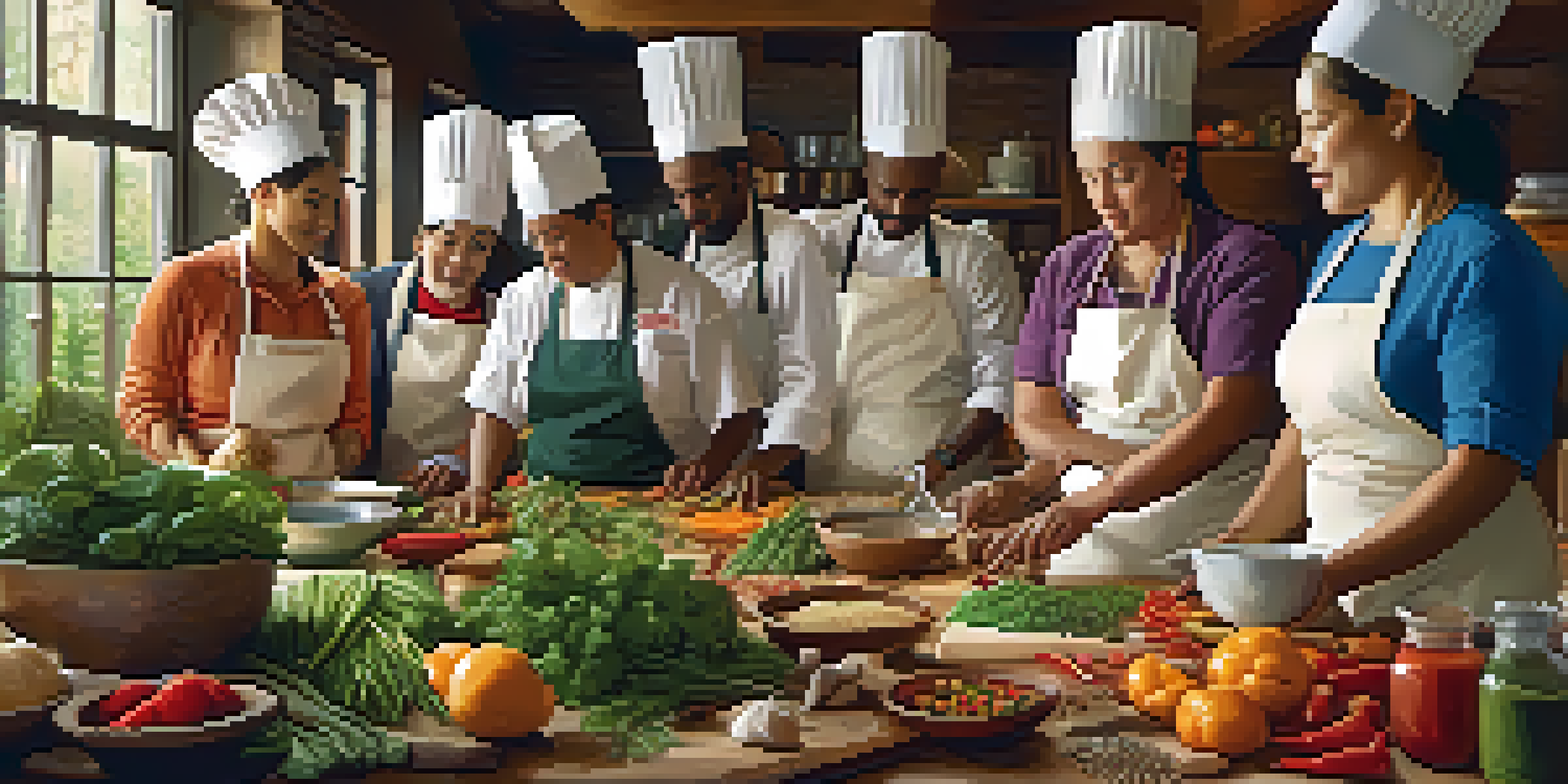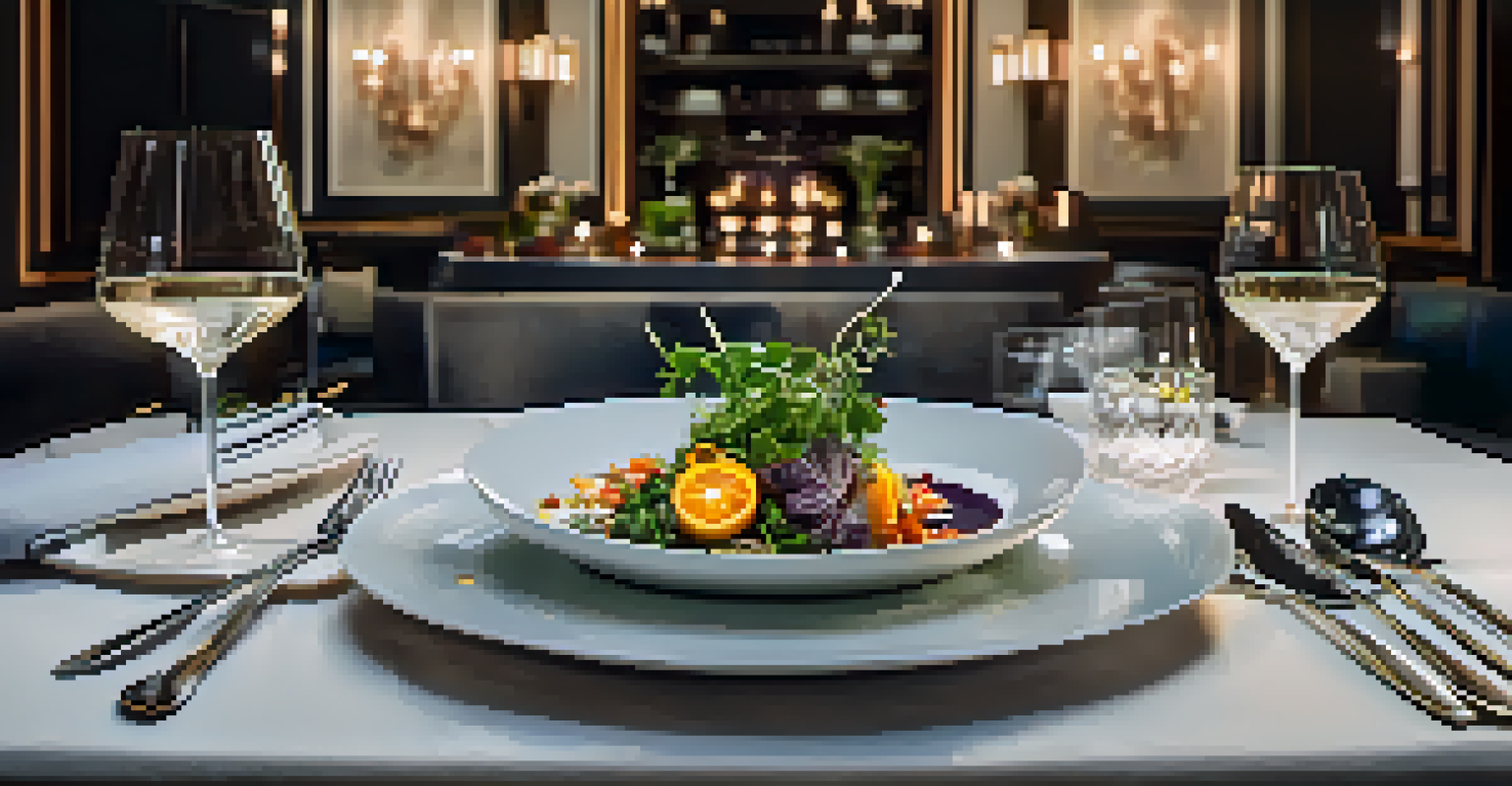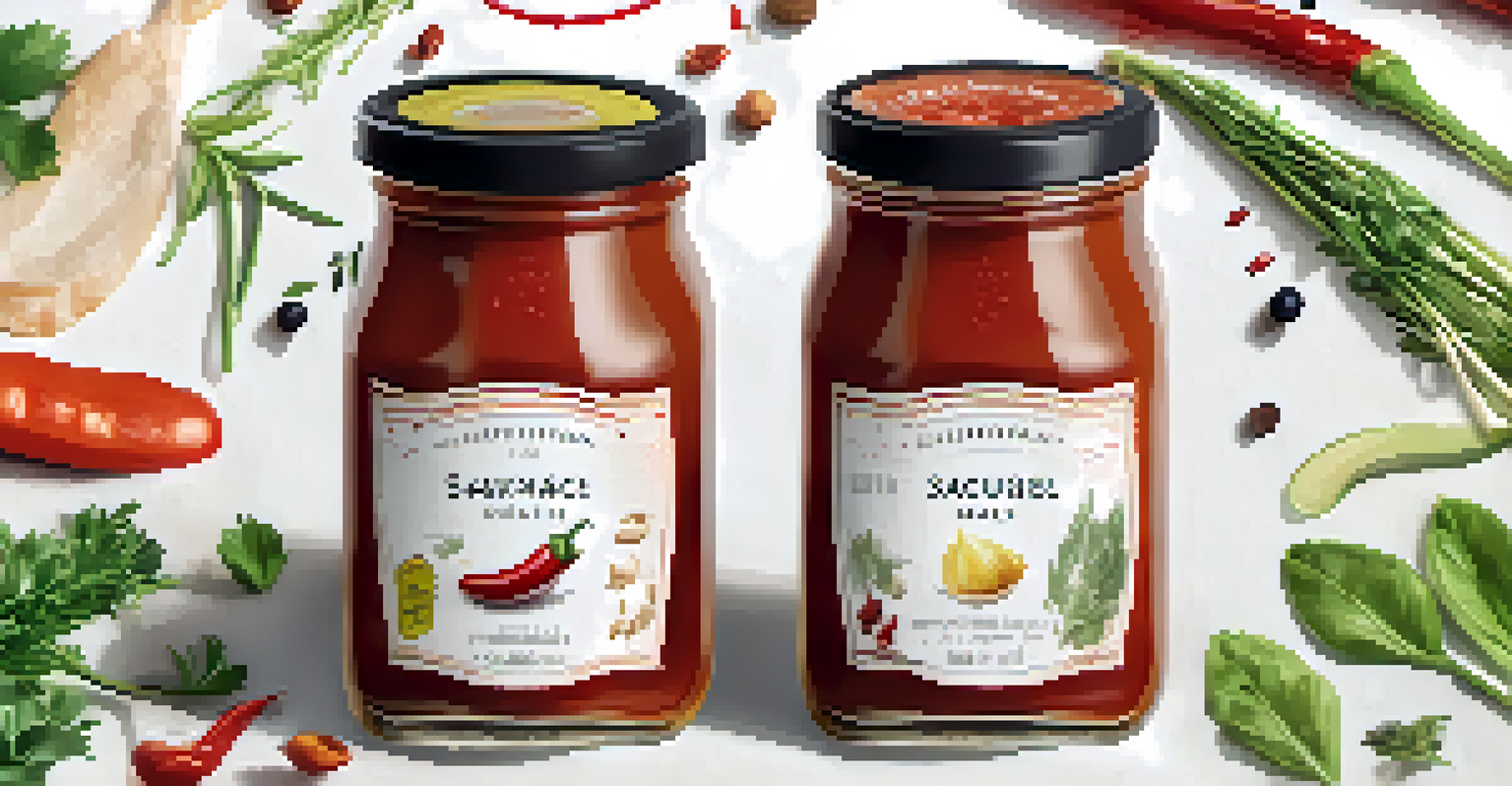Culinary Collaborations: Chefs and Food Startups Unite

The New Era of Culinary Collaboration
In today’s dynamic food scene, culinary collaboration is flourishing like never before. Chefs are no longer just working in their own kitchens; they’re joining forces with innovative food startups to create something unique. This collaboration allows chefs to explore new ingredients and techniques while startups gain valuable insights from seasoned professionals.
Collaboration allows us to know more than we are capable of knowing by ourselves.
Take, for example, the partnership between renowned chef José Andrés and the startup WTRMLN WTR. Together, they crafted a refreshing beverage that combines flavor with health benefits, showcasing how chefs can elevate a startup's vision. Such alliances not only enhance creativity but also push the boundaries of traditional cuisine.
These culinary partnerships are reshaping how we think about food and dining. By merging the expertise of chefs with the fresh ideas of startups, we’re witnessing the birth of exciting new dishes and products that delight consumers and create memorable dining experiences.
Benefits for Chefs and Startups Alike
When chefs collaborate with food startups, both parties stand to gain a lot. For chefs, it’s an opportunity to experiment with flavors and concepts that may not fit into their restaurant's menu. They can test their culinary skills in a more flexible environment, allowing for creativity without the constraints of traditional dining.

On the startup side, partnering with a respected chef brings credibility and visibility. Startups often struggle to establish themselves in a competitive market, and having a well-known chef onboard can attract attention and consumers. This collaboration can lead to innovative product development that resonates with the target audience.
Culinary Collaborations Drive Innovation
Chefs and food startups are joining forces to create unique products that blend culinary expertise with fresh ideas.
Moreover, these partnerships often lead to greater marketing opportunities. With a chef’s name attached to a product, startups can leverage social media and other platforms to reach wider audiences, making culinary collaborations a win-win situation for everyone involved.
Innovative Product Development
Culinary collaborations often result in exciting new products that blend creativity with practicality. Chefs bring their culinary expertise to the table, helping startups refine recipes and enhance flavors. This process can lead to the creation of products that are not only delicious but also market-ready.
Innovation distinguishes between a leader and a follower.
For instance, when chef David Chang teamed up with the food tech startup, Miso Robotics, they developed a robotic kitchen assistant that helps streamline cooking processes. This combination of culinary artistry and technology showcases how chefs can play a pivotal role in product innovation.
Such collaborations highlight the importance of adaptability in the food industry. Chefs who embrace new ideas and technologies can help startups bring their visions to life, resulting in products that stand out in a crowded marketplace.
Building a Stronger Culinary Community
Culinary collaborations foster a sense of community among chefs and food entrepreneurs. When chefs collaborate with startups, they share knowledge, skills, and experiences, creating a supportive environment. This spirit of collaboration helps to inspire the next generation of culinary talent.
Moreover, these partnerships often lead to networking opportunities. As chefs and startup founders work together, they build relationships that can lead to future collaborations or mentorship roles. This interconnectedness strengthens the culinary community as a whole.
Mutual Benefits for Chefs and Startups
These partnerships offer chefs creative freedom while providing startups with credibility and market visibility.
By supporting each other, chefs and startups can navigate the challenges of the food industry more effectively. Together, they can share resources and insights, ultimately leading to greater innovation and success.
Sustainable Practices in Culinary Partnerships
Sustainability is becoming increasingly important in the culinary world, and collaborations between chefs and startups often prioritize eco-friendly practices. Many food startups focus on sourcing local ingredients or using sustainable packaging, which aligns with chefs' growing commitment to environmental responsibility.
For example, chef Dan Barber has partnered with various startups to promote sustainable farming practices. Through these collaborations, he highlights the importance of knowing where our food comes from and encourages consumers to make more conscious choices.
By working together, chefs and startups can champion sustainability in the food industry. Their collective efforts can lead to innovative solutions that not only benefit their businesses but also contribute to a healthier planet.
The Role of Technology in Culinary Collaborations
Technology plays a significant role in modern culinary collaborations, enabling chefs and startups to connect and innovate more efficiently. Social media platforms allow for real-time communication, helping chefs discover new startups and vice versa. This instant connectivity has opened doors to countless opportunities.
Moreover, technology facilitates the testing and development of new products. Startups can utilize data analytics to understand consumer preferences and tailor their offerings accordingly, while chefs can use digital tools to experiment with recipes and share their creations with a wider audience.
Sustainability in Culinary Partnerships
Collaborations often prioritize eco-friendly practices, promoting sustainable sourcing and environmental responsibility.
As technology continues to evolve, it will undoubtedly shape the future of culinary collaborations. Chefs and startups that embrace these advancements will be at the forefront of the food industry, driving trends and creating memorable dining experiences.
Success Stories of Culinary Collaborations
Numerous success stories highlight the power of culinary collaborations in transforming the food landscape. One notable example is the partnership between chef Marcus Samuelsson and the startup, Red Rooster. Together, they created a line of sauces that reflect the flavors and cooking styles of their Harlem restaurant, highlighting the importance of cultural heritage.
Another inspiring story is that of chef Thomas Keller and the startup, Nespresso. Their collaboration led to the development of exclusive coffee blends that are served in Keller’s restaurants, showcasing the seamless integration of food and beverage experiences.

These success stories not only illustrate the potential of culinary collaborations but also inspire others in the industry to explore similar partnerships. As chefs and startups continue to innovate together, they pave the way for exciting culinary adventures that capture the imagination.